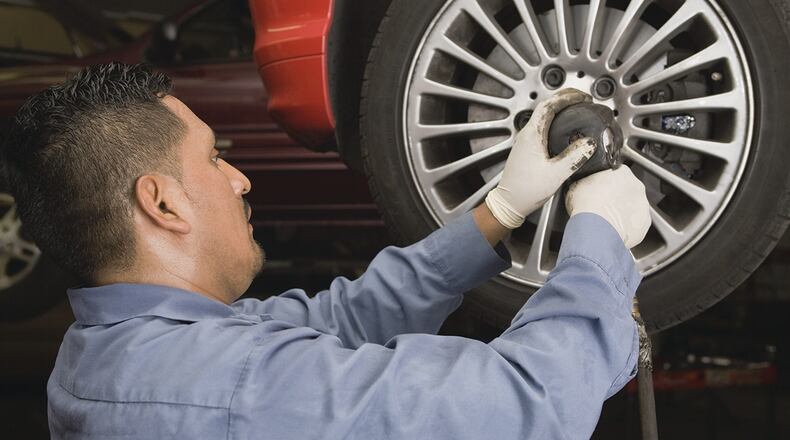Cars are indeed a significant investment, which underscores the importance of vehicle maintenance. Maintenance is more than just tending to what’s under the hood. Tires also require drivers’ attention, as aging, damaged tires pose a safety risk that also compromise vehicle performance. Tires are easily overlooked, but the following are four signs tires need to be replaced.
1. Worn tread: The automotive experts at AutoZone note that tread depth is the most prevalent indicator that a tire needs to be replaced. AutoZone notes that tread depth should always be at least 2/32 of an inch throughout the tire. Depth should be measured across the tread and around the circumference. If the tread is at or below 2/32 of an inch, the tire should be replaced.
2. Bulges, gouges or cracks: Geico notes that a deflated tire bulges at the sides, and that can compromise the safety of everyone in the vehicle. AutoZone says bulges occur when air gets between the inner liner and outer rubber layers, which can happen after hitting a curb or driving over a sizable pothole. A gouge or cut that is deeper than the outer layer of the tire also necessitates replacement.
3. Poor grip: Drivers may be able to feel certain tire problems, including poor grip, while driving. In such instances, tires may feel as though they are slipping. The tire experts at Firestone note that low tread can reduce tire traction and cause wheels to slip, which may be more noticeable when accelerating from a stop or driving on wet roads. Drivers who feel their tires are slipping can test the tread and replace tires that are low.
4. Vibration: Vibration is another issue drivers may feel rather than see. And identifying the cause requires noting where the vibrations are felt. Geico¨ notes that a feeling of vibration or thumping that feels like it’s coming from under the seats may indicate the tires are not balanced. A suspension issue could be to blame if the steering wheel feels like it’s vibrating. Either feeling should be brought to the attention of a mechanic immediately.
Tire issues affect vehicle performance and compromise the safety of drivers, their passengers and fellow motorists. When vehicles are not performing at peak capacity, drivers should not overlook various tire issues as a potential cause of such troubles.
About the Author
